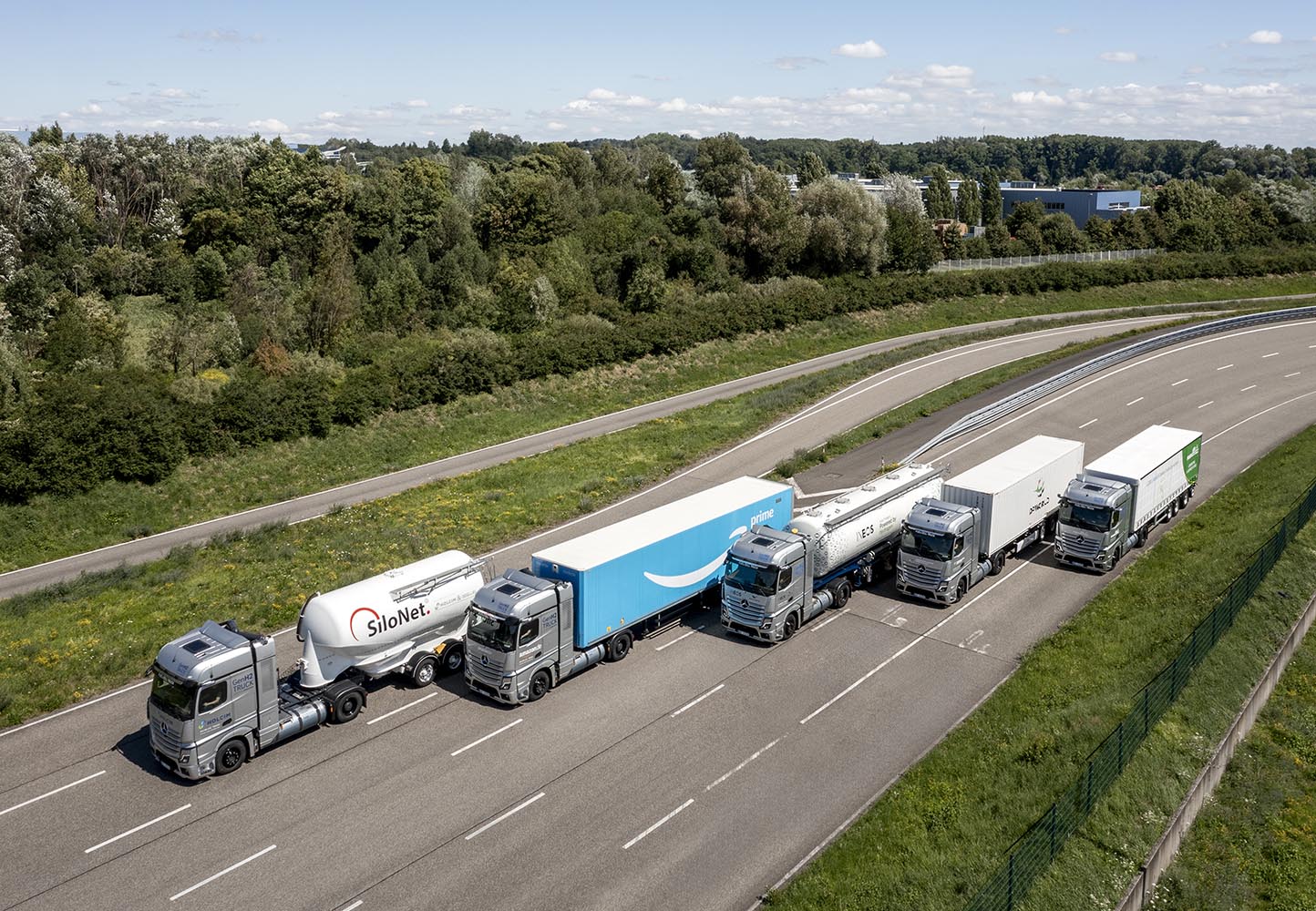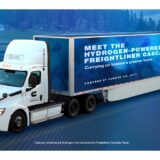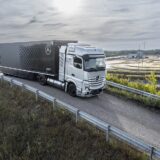
Daimler Truck launches hydrogen fuel cell truck trials
Daimler Truck AG has initiated customer trials for its Mercedes-Benz GenH2 Trucks, marking a significant step towards the decarbonisation of long-haul transport. This trial involves five hydrogen fuel cell trucks deployed with notable partners: Air Products, Amazon, Holcim, INEOS, and Wiedmann & Winz.
The trials will run for approximately one year, allowing customers to gain practical experience with the fuel cell trucks in various long-haul applications, including transporting building materials, sea containers, and cylinder gases. These trials will provide Daimler Truck with valuable insights into the operational performance of the trucks, which will inform the final stages of their development for series production.
The GenH2 Trucks are designed to match the performance of conventional long-haul trucks. They feature a payload capacity of approximately 25 tons and a gross combination weight (GCW) of 40 tons. The trucks are equipped with two liquid hydrogen tanks and a powerful fuel cell system developed by cellcentric, a joint venture between Daimler Truck and Volvo Group. This system enables the trucks to achieve a range of more than 1,000 kilometres on a single tank of liquid hydrogen.
The trucks will be refuelled at liquid hydrogen filling stations in Woerth am Rhein and Duisburg, Germany. Daimler Truck emphasises the necessity of developing robust refuelling infrastructure and achieving cost parity with conventional vehicles to ensure the success of sustainable transportation.
Martin Daum, chairman of the Board of Management of Daimler Truck, stated, “We are focusing on battery-electric and hydrogen-based drives for decarbonising transport. The transformation can only succeed if green energy is sufficiently and comprehensively available—and for this we need both technologies. With regard to hydrogen drives, we are now taking another important step towards series readiness: we are starting the trials of our Mercedes-Benz GenH2 Trucks in real-life daily transport operations with our customers.”
Hildegard Müller, president of the German Association of the Automotive Industry (VDA), added, “On the path towards the climate-neutral mobility of the future, the potential of all available technologies should be exploited. Particularly when it comes to heavy-duty commercial vehicles, e-mobility cannot be equated exclusively with battery-electric drive. Rather, the fuel cell drive powered by hydrogen must also be considered as part of the diversity of available technologies. Manufacturers have the corresponding models in development and production, and now the political framework conditions must finally be created: a needs-based network of hydrogen filling stations and the associated infrastructure must be built up urgently.”
Partners participating in the trials expressed optimism about the project. Seifi Ghasemi, CEO of Air Products, highlighted the importance of logistics in their business and the critical step of converting their fleet to hydrogen-powered vehicles. Andreas Marschner, vice president of Amazon Transportation Services, reaffirmed Amazon’s commitment to net-zero carbon emissions by 2040 and the role of such innovations in achieving this goal.














